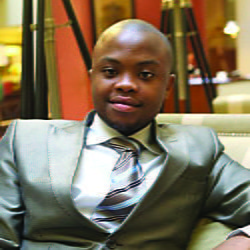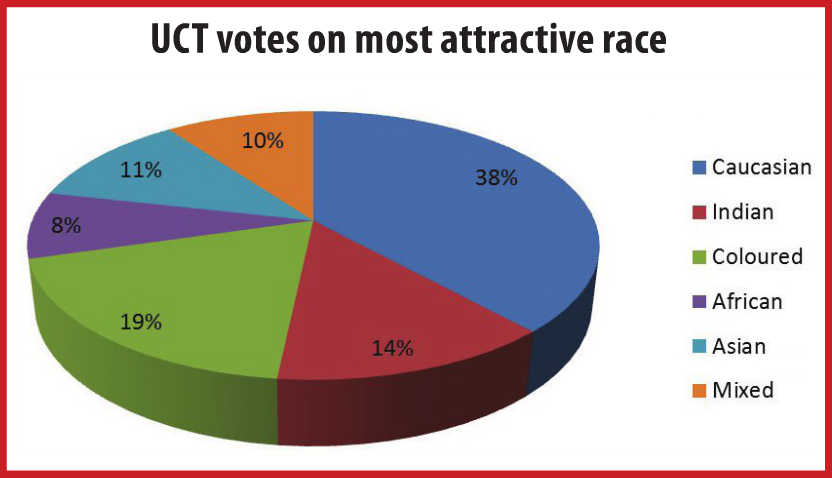Originally published in the Daily Maverick
 During one of Dara Ó Briain’s stand-up shows, he ridicules the way that panel discussions sometimes include lunatic views “for balance” (watch the clip below). His target in this skit is homeopathy and pseudoscience more broadly, but the general point he makes is that we aren’t obliged to offer a platform to any opposing view, no matter how entitled the holder of that view might be to believing what they do.
During one of Dara Ó Briain’s stand-up shows, he ridicules the way that panel discussions sometimes include lunatic views “for balance” (watch the clip below). His target in this skit is homeopathy and pseudoscience more broadly, but the general point he makes is that we aren’t obliged to offer a platform to any opposing view, no matter how entitled the holder of that view might be to believing what they do.
We can distinguish between your moral right to believing in something, rights to free expression of that belief, and then any obligations that others might have to listen to or even publish that belief. Crucially, defenders of free speech are not inconsistent in refusing to entertain any given view – they would need to actually attempt to stop you from expressing it.
What this means is that censorship, or violations of your freedom of expression, would typically only be something that a government could do. But when we speak of controversial things in the media – for example racism – there seems to be a view that not publishing racist rants constitutes censorship.
The City Press generated a debate on exactly this issue last week, when they chose to publish an anti-Indian screed by Phumlani Mfeka in which he reminds Indian citizens that they have never been comrades, and that they should “realise that Africans in this province [KZN] do not regard Indians as their brethren and thus the ticking time bomb of a deadly confrontation between the two communities is inevitable”.
Some of us were quick to denounce the publication of this piece as an instance of editorial failure, for reasons that I hope to make clear here. I also want to argue that refusing to publish a piece such as the one in question violates nobody’s rights to free expression, and is certainly no betrayal of your covenant with readers.
To start at the end: a newspaper can’t be obliged to publish everything. Someone on Twitter told me that “media must reflect all opinion to allow rebuttal”, but this is quite clearly nonsensical. If all opinions must be included, all publications would need to be infinite in length (and could never in fact go to print, since you’d have to spend an infinity looking for the nth variation of any given opinion).
Secondly, that view is nonsensical because editorial decisions to include or exclude content are are made all the time, for various reasons. One piece might be cut due to space considerations, another because it’s dated, and yet another because it’s too poorly written. And then, we can also choose to not publish something because it’s rubbish.
In whose view is it rubbish, I imagine some asking? The editor’s view is the answer – for that is his or her job. The editor has a certain vision for what the newspaper should carry, and for what sorts of ideals or ideas it is intended to highlight. Neither the City Press – nor, fortunately, most of our newspapers – carries horoscopes. Yet we would not humour an astrologer’s claims that his (I use the masculine because I’m reminded of Primedia’s CapeTalk567, who give stargazer Rod Suskin a full hour every week) right to free speech is being violated as a result.
So the City Press could have chosen to not publish the piece in question, without violating anyone’s rights. While it’s true that we sometimes want to hear what the racists are saying – both as a safeguard against soporific versions of the Rainbow Nation narrative, and in order to expose and rebut them, no particular newspaper is obliged to give space to particular types of bigotry.
Choosing to include content like this signals either inconsistency (why anti-Indian racism, and not homophobia, blasphemy, or articles advocating incest – they all raise “debate”, after all) or a willingness to enter the tabloid space, where you stop pretending to have editorial standards at all, and just pander to sensation.
The column has become a springboard for debate, in that we’ve already seen responses from the editor, Ferial Haffajee, and others. But while debate can be constructive and even sometimes necessary, let’s not make the mistake of assuming that it’s always any of these, nor that you can’t have this debate without publishing the likes of Mfeka.
While we know that racism exists and is even fairly prevalent, it nevertheless comes in different degrees of sophistication. This is true for all views, and we – as editors, publishers or simply conversationalists – indicate what our minimum standards of coherence and sense are through which of those views we decide to engage with.
If there are sophisticated racists out there, and we imagine ourselves to be a sophisticated discussant, we’ll talk to them rather than to Hendrik Verwoerd. Likewise, we might discuss same-sex marriage with someone other than the leader of Westboro Baptist Church, and evolution with someone who at least agrees that the earth is more than 6000 years old.
What we might prefer not to do is talk to, or publish, views that are so simple-minded that the only function they can serve is as a springboard for ridicule (if you’re feeling uncharitable) or sympathy (if you’re not). This has no bearing on anyone’s right to hold that view, or your right to publish it.
But those rights don’t come with the obligation to publish. And as a superb recent essay by Mark Rowlands puts it, the reader has the right “to be completely uninterested in views that you find stupid or abhorrent”.
It is of course up to those who manage content to decide what to publish. But just as readers can and will ignore some views, it’s a small step from ignoring views to ignoring platforms for those views. The racist, misogynistic or homophobic trolls have enough places to congregate already – let’s not give them the City Press too?
City Press Editor-in-Chief, Ferial Haffajee, has subsequently commented on the reasoning behind publishing Mfeka’s piece.
















